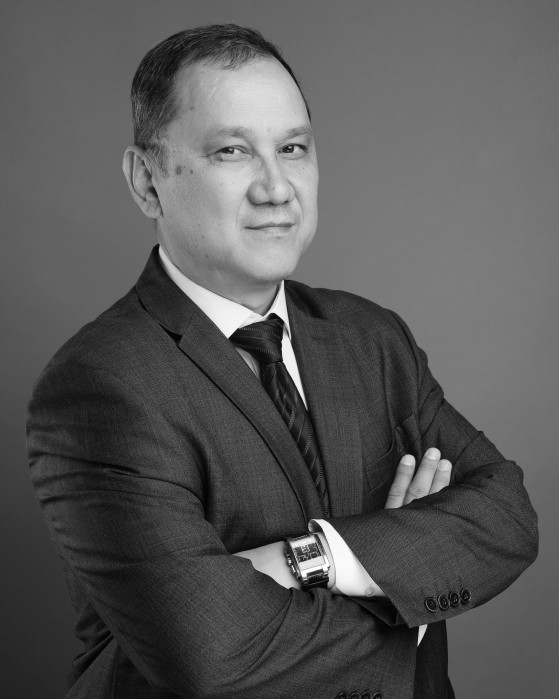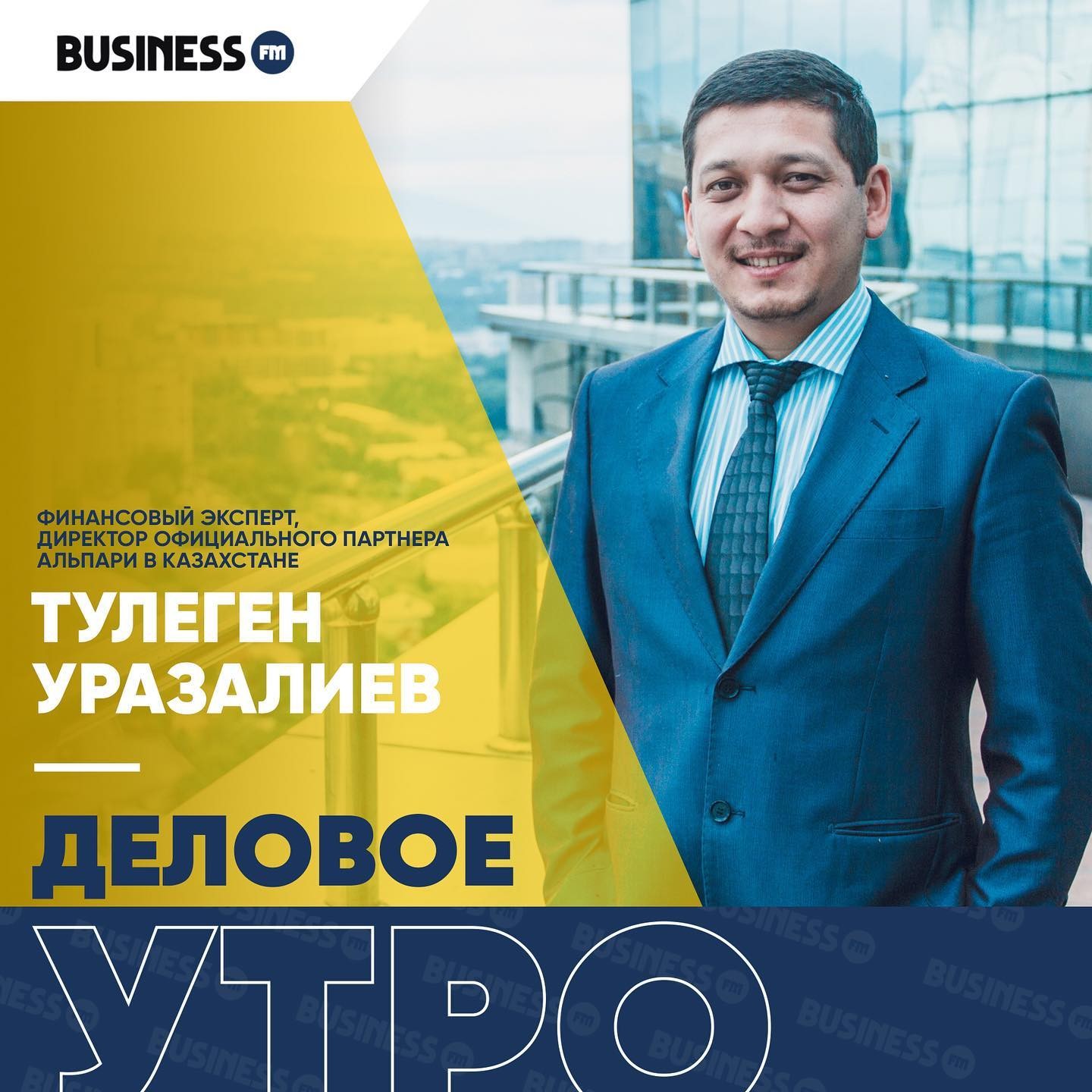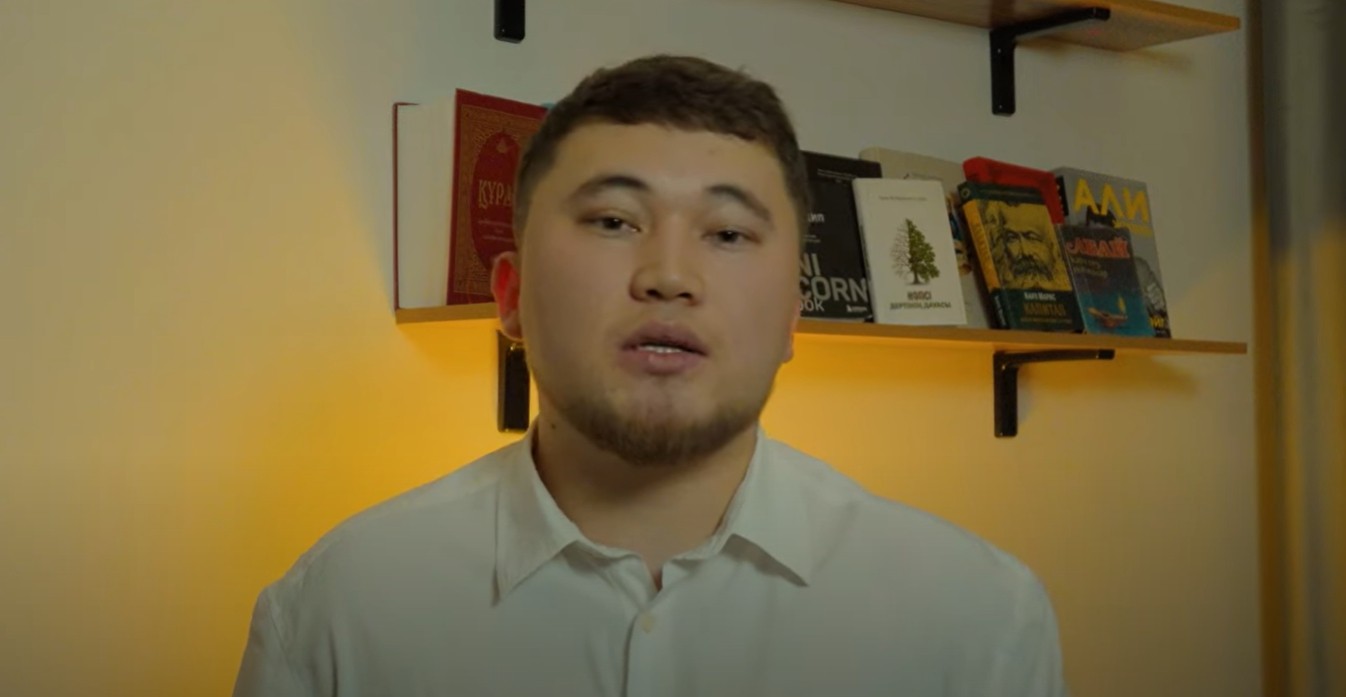Richest Forex traders In Kazakhstan: Full Market View



Editorial Note: While we adhere to strict Editorial Integrity, this post may contain references to products from our partners. Here's an explanation for How We Make Money. None of the data and information on this webpage constitutes investment advice according to our Disclaimer.
Successful Forex traders in Kazakhstan:
Aidar Kaliasqar – known for his educational content and mentorship, he has built a large following among beginner Forex traders in Kazakhstan.
Marat Gazizov – a frequent speaker at regional trading seminars, he emphasizes risk management and disciplined trading strategies.
Tulegen Urazaliev – specializes in technical analysis and shares regular market insights through webinars and social media.
Nurbol Kalymbek – focuses on algorithmic trading systems and has gained recognition for his automation tools in local trading circles.
There’s almost no available data on how private Forex traders in Kazakhstan are actually performing. No one shares verified reports, public portfolios, or track records with confirmed returns. What stands out instead are things like online classes, interviews, or appearances on trading platforms. These activities build a following, even without numbers to back them. As a result, traders are judged more by their visibility in the field than by proven success. Under these conditions, Kazakhstan Forex trading success stories often emerge more from public perception than from measurable performance — being listed among the richest traders is as much about recognition as it is about actual results.
Who are the most successful Forex traders in Kazakhstan?
The Forex trading landscape in Kazakhstan is well-supported by brokers and institutions, but it’s hard to know how individual traders are really doing. Broker presence, training efforts, and media visibility are strong, but public examples of traders with clear, proven results, those who show their trades, explain their methods, and make consistent profits, are still missing. The country’s most recognized figures are either educators, fintech founders, or corporate spokespeople. They have influence, but their profits can’t be independently verified. Top Forex traders in Kazakhstan are often better known for their public roles than for their performance in the market.
Kazakhstan Forex traders’ net worth remains largely unknown, as most well-known names in the space haven’t shared personal earnings or transparent trading histories.
Aidar Kaliasqar

Aidar Kaliasqar leads the Forex Club Libertex office in Nur-Sultan. With over a decade in trading and investment, he has hosted more than 1,000 seminars and often comments on Kazakhstan’s economic policies. He provides market insights, including outlooks on currencies like the Japanese yen — and is a regular guest in financial media. However, he hasn’t shared details of his strategies or past trades. His public image comes more from his job title than trading results.
Marat Gazizov

Marat Gazizov is a seasoned Forex trader and educator with over 25 years in financial markets. He developed the "Base Principle" system, which is based on traditional chart-reading techniques and includes ideas from Elliott Wave Theory. Gazizov teaches through the FinExpert platform, where he focuses on market structure, price behavior, and patterns. His teaching style is simple and straightforward, staying away from complicated indicators and relying instead on reading the charts directly.
Tulegen Urazaliev

Tulegen Urazaliev is a trader and educator based in Almaty, well known among Russian-speaking traders for developing his “Last Kiss” strategy. This approach, which uses Fibonacci-based price action, aims to spot trades after a pullback to a previously broken level. While not formally published in academic circles, it has been widely shared across YouTube, forums, and educational websites such as academyfx.ru and fullinvest.ru. The strategy is said to be used by thousands of traders across the CIS region.
Since 2010, Urazaliev has operated as a registered individual entrepreneur in Kazakhstan, mainly in IT and education. He also leads Intellectual Development of Kazakhstan LLP, which was launched in 2017. Based on publicly available data from the Kazakhstan State Revenue Committee, his companies paid 787,211 KZT in taxes in 2024, reflecting active and ongoing business operations source: ba.prg.kz. Urazaliev conducts structured seminars, online training sessions, and community Q&As, emphasizing self-reliance, trade timing, and pattern recognition. He steers clear of selling signals or collaborating with brokers, focusing instead on helping traders read the market independently. While his personal performance numbers have not been verified, his influence remains visible in his active teaching and trader support, rather than claims based solely on profit figures.
Nurbol Kalymbek

Nurbol Kalymbek is the founder of Rizyq, a learning platform created for Kazakh-speaking beginners exploring trading and financial literacy. Through his YouTube channel (@NurbolKalymbek), he shares tutorials and motivational content aimed at helping newcomers understand basic market principles. He is viewed by many as a rising educator within the local trading scene, especially among first-time investors and students.
Potential for success in the Forex market in Kazakhstan
Current legal framework and regulation
Kazakhstan's Forex market is going through big changes. In 2024, the country ended a ban on business inspections and rolled out a new system that focuses on risky areas. This move aims to make things clearer and more open for Forex traders and brokers. By concentrating on high-risk spots, businesses that follow the rules can work with fewer interruptions and more peace of mind.
The Astana International Financial Centre (AIFC) has become a key part of Kazakhstan's financial scene. As of August 2024, over 3,000 companies, including big-name financial firms and fintech startups, have set up shop there. The AIFC uses a legal system based on English common law, which makes it easier to trade and invest in Forex. Its independent regulator, the Astana Financial Services Authority (AFSA), helps investors feel more confident and keeps the market honest.
In 2023, the National Bank of Kazakhstan made some important changes affecting Forex operations. They lowered the daily limit on buying foreign currency without obligations from USD 100,000 to USD 50,000 and banned taking out more than USD 10,000 in cash. These steps are meant to cut down on the risks of money leaving the country and keep the currency market stable. At the same time, electronic Forex transfers weren't affected, so traders and investors still have flexibility in how they operate.
Opportunities and challenges for traders
Kazakhstan’s Forex scene is more than just a fast-developing market. It’s becoming a key link between trading hubs in Europe and Asia. In 2023, retail Forex volume from local brokers topped $1.2 billion. That growth is powered by open internet access, a booming fintech space, and a wave of young traders using tools like MetaTrader and cTrader. But the real chance is in cities like Shymkent and Karaganda, where local brokers are now launching education programs to reach newer traders beyond Almaty and Astana.
One challenge many miss is the lack of proper rules. The Astana Financial Services Authority still doesn’t fully regulate offshore Forex brokers who serve Kazakh traders. This has created a divided scene. On one side, you’ve got trusted platforms with strong features. On the other, unlicensed brokers fill up Telegram and Instagram with flashy ads and risky copy-trading offers. Reports from late 2023 showed that 65 percent of local Forex scams came from these social media signals. It shows the need for better rules, not just tighter bans.
There’s also an interesting link between crypto and Forex here. Kazakhstan is one of the world’s top five Bitcoin mining countries, and with recent mining crackdowns, many crypto traders are shifting into Forex. These traders already understand risk and fast-moving markets, so they’re open to things like synthetic indices and CFDs. It’s a quiet but important shift, and brokers who catch this trend early could lead Kazakhstan’s next phase of Forex growth.
Education and strategy in achieving results
Most structured education offerings come from foreign institutions and international trading platforms. Some local efforts exist, such as the AIFC Academy, but the dominant formats are in English and cater to a global user base. Topics covered include capital management, technical systems, and market structure comprehension.
Strategic development is highly individualized. Traders operating from Kazakhstan face limited access to region-specific data feeds, trading simulators, and verified historical models. Educational content tends to be generalized, requiring adaptation to local volatility profiles and asset behavior. Results depend not on curriculum but on how well tools are calibrated to fragmented infrastructure and regulatory ambiguity.
What successful traders teach in Kazakhstan
Trading education in Kazakhstan focuses on clear systems and consistent execution. Many instructors, often connected with top Forex traders Kazakhstan, run Telegram channels, host Zoom group sessions, and lead seminars in Almaty or through private online courses. Their teaching methods form the foundation of what many view as Kazakhstan’s most successful Forex trading stories.
Lessons revolve around interpreting price movements. Students are taught how to spot trends, recognize corrections, plan entries, and set clear exit targets. Most strategies are taught using four-hour and daily charts. Instruction is delivered through annotated screenshots, voice messages, and repeated real-chart examples. Indicators are left out. Only price action and market structure guide the learning.
The teaching format doesn’t change. A trading zone is identified, the logic behind it is explained, and a real-market chart example follows. Lessons are shared within private groups. Each part of the strategy is taught one step at a time. The overall program relies on consistent practice and hands-on learning.
There is no official data on Kazakhstan's Forex traders’ net worth. Profit figures aren't made public. Instructors typically don’t share their account statements or income details. Instead, their reputation is shaped by how frequently they teach, the quality and quantity of content they share, and how well their students respond to their material.
Some students wonder whether Forex trading millionaires in Kazakhstan actually exist, hoping for screenshots or hard numbers. But what they receive are detailed walkthroughs of setups, entry checklists, and clear trading examples. The emphasis is always on process and structure, not personal wealth.
For Forex traders in Kazakhstan, it is best to use a Forex account built for traders from their country. In the table below, we have shortlisted some of the top few brokers offering accounts for traders in Kazakhstan. You may compare them and choose the best one for yourself:
| Available in Kazakhstan | Currency pairs | Min. deposit, $ | Max. leverage | Deposit fee, % | Withdrawal fee, % | Regulation | TU overall score | Open an account | |
|---|---|---|---|---|---|---|---|---|---|
| Yes | 40 | 100 | 1:500 | No | No | ASIC, SCB, CySEC, FCA | 9.1 | Open an account Your capital is at risk. |
|
| Yes | 57 | 5 | 1:1000 | No | No | CySEC, FSC (Belize), DFSA, FSCA, FSA (Seychelles), FSC (Mauritius) | 9 | Open an account Your capital is at risk. |
|
| Yes | 40 | 10 | 1:2000 | No | 0-4 | FSC | 8.9 | Open an account Your capital is at risk. |
|
| Yes | 100 | 10 | 1:2000 | No | No | FCA, CySEC, FSA (Seychelles), FSCA, BVI FSC, CBCS, CMA | 8.7 | Open an account Your capital is at risk.
|
|
| Yes | 55 | 100 | 1:500 | No | 1-3 | ASIC, FSCA, FSC Mauritius | 8.69 | Open an account Your capital is at risk. |
Why trust us
We at Traders Union have analyzed financial markets for over 14 years, evaluating brokers based on 250+ transparent criteria, including security, regulation, and trading conditions. Our expert team of over 50 professionals regularly updates a Watch List of 500+ brokers to provide users with data-driven insights. While our research is based on objective data, we encourage users to perform independent due diligence and consult official regulatory sources before making any financial decisions.
Learn more about our methodology and editorial policies.
Kazakhstan’s top Forex traders use volatility gaps and isolated sessions for profit
Kazakhstan’s top Forex traders don’t just follow patterns, they know exactly when to jump in. A lot of them trade during quieter times, like late at night or before the big markets open. That’s when things get raw: prices can move fast, spreads widen, and big banks aren’t pushing the price around. For someone just starting out, it might feel weird to trade during these off-hours, but that’s when these traders get their best entries, before everyone else even shows up.
They also love spotting sudden price jumps that come out of nowhere. Most new traders panic when that happens, but these pros see it as their moment. They set up alerts for odd price behavior, like when the spread changes fast or the candle shape looks off. That tells them something’s about to break. If you really want to learn from them, stop staring at the news and start watching for those quiet shifts right before the action kicks off.
Conclusion
The public profile of the Forex space in Kazakhstan is shaped by educational efforts, media presence, and institutional affiliations. At the same time, access to verified trading records, consistent performance data, and transparent account structures remains limited. Most visible figures build recognition through content creation and involvement in financial initiatives rather than through documented trading activity. This creates a gap between the presentation of expertise and the traceability of actual market operations. Observation is possible, but performance-based evaluation remains constrained.
FAQs
How can a trader from Kazakhstan track whether their strategy fits local market conditions?
By testing it on instruments like USD/KZT during events linked to commodity price shifts or regional currency changes. Monitoring performance during these periods helps adjust the strategy to local volatility patterns.
Is it useful to take a course from a trader without a verified track record?
It depends on the structure. A course with clear topics, step-by-step exercises, and defined outcomes may still provide value. The content must be specific and directly applicable to live market work.
What technical setups are most common among traders in Kazakhstan?
Most use basic price action setups, support/resistance zones, breakouts, and pullbacks. Simpler systems are favored due to ease of execution and limited access to advanced automation tools.
Why are there so few public trading journals or verified portfolios in Kazakhstan?
This is tied to low integration with global tracking platforms, limited local demand for transparency, and a preference for private infrastructure. Traders tend to operate independently, without incentives for public reporting.
Related Articles
Team that worked on the article
Maxim Nechiporenko has been a contributor to Traders Union since 2023. He started his professional career in the media in 2006. He has expertise in finance and investment, and his field of interest covers all aspects of geoeconomics. Maxim provides up-to-date information on trading, cryptocurrencies and other financial instruments. He regularly updates his knowledge to keep abreast of the latest innovations and trends in the market.
Chinmay Soni is a financial analyst with more than 5 years of experience in working with stocks, Forex, derivatives, and other assets. As a founder of a boutique research firm and an active researcher, he covers various industries and fields, providing insights backed by statistical data. He is also an educator in the field of finance and technology.
As an author for Traders Union, he contributes his deep analytical insights on various topics, taking into account various aspects.
Mirjan Hipolito is a journalist and news editor at Traders Union. She is an expert crypto writer with five years of experience in the financial markets. Her specialties are daily market news, price predictions, and Initial Coin Offerings (ICO).






























































































































